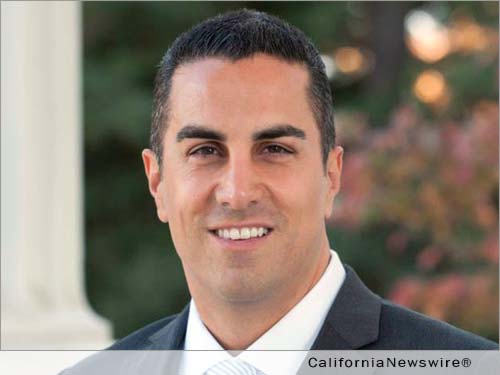
SACRAMENTO, Calif. /California Newswire/ — When Calif. Assemblyman Mike Gatto (D-Los Angeles) introduced AJR 1 in December 2012, he was the first legislator in the United States to employ a unique procedure in the U.S. Constitution that allows state legislatures to command Congressional action. Specifically, AJR 1 would require Congress to call a convention to amend the Constitution, to address the Supreme Court’s decision in Citizens United v. Federal Election Commission. Today, good-government advocates are celebrating after AJR 1 passed the California State Senate by a vote of 23-11. AJR 1 has already prompted Vermont to pass a resolution modeled after it, and in Illinois a similar resolution is currently making its way through its legislature.
“Most Americans are fed up with the notion that money is speech and that moneyed interests can drown out the speech of average citizens,” said Gatto.
This burgeoning movement to limit the effect of financial influence in the political system continues to grow. Earlier Monday morning, the California Highway Patrol arrested fourteen protestors outside the State Capitol who marched more than 450 miles from Los Angeles to rally to get money out of politics and in support of AJR 1. Two days earlier, The San Francisco Chronicle editorialized in favor of a convention, calling the Resolution “the most significant step in a fledging revolution” to obtain campaign-finance reform.
The Founding Fathers’ records indicate that the ability of states to propose amendments was intentionally provided to empower the people, through their state legislatures, to address constitutional issues that Congress is unwilling, unable, or too oppressive to address. According to a 2007 article in the Harvard Journal of Law and Public Policy, at least four different amendments to the U.S. Constitution eventually were adopted because of state-initiated Article V actions. For example, the amendments that repealed Prohibition and allowed for the direct election of Senators were first demanded by state legislatures under Article V, prompting Congress to act just before the threshold for a convention was reached.
“I doubt our Founding Fathers had the free-speech rights of multi-national and foreign corporations in mind when they drafted the First Amendment,” said Gatto. “But the Founding Fathers did anticipate that every once in a while, the states would need to prod Congress to act to amend the Constitution. That’s what we are doing.”
Mike Gatto is the Chairman of the Appropriations Committee in the California State Assembly. He represents Burbank, Glendale, La Cañada Flintridge, La Crescenta, Montrose, and the Los Angeles neighborhoods of Atwater Village, East Hollywood, Franklin Hills, Hollywood Hills, Los Feliz, and Silver Lake.















